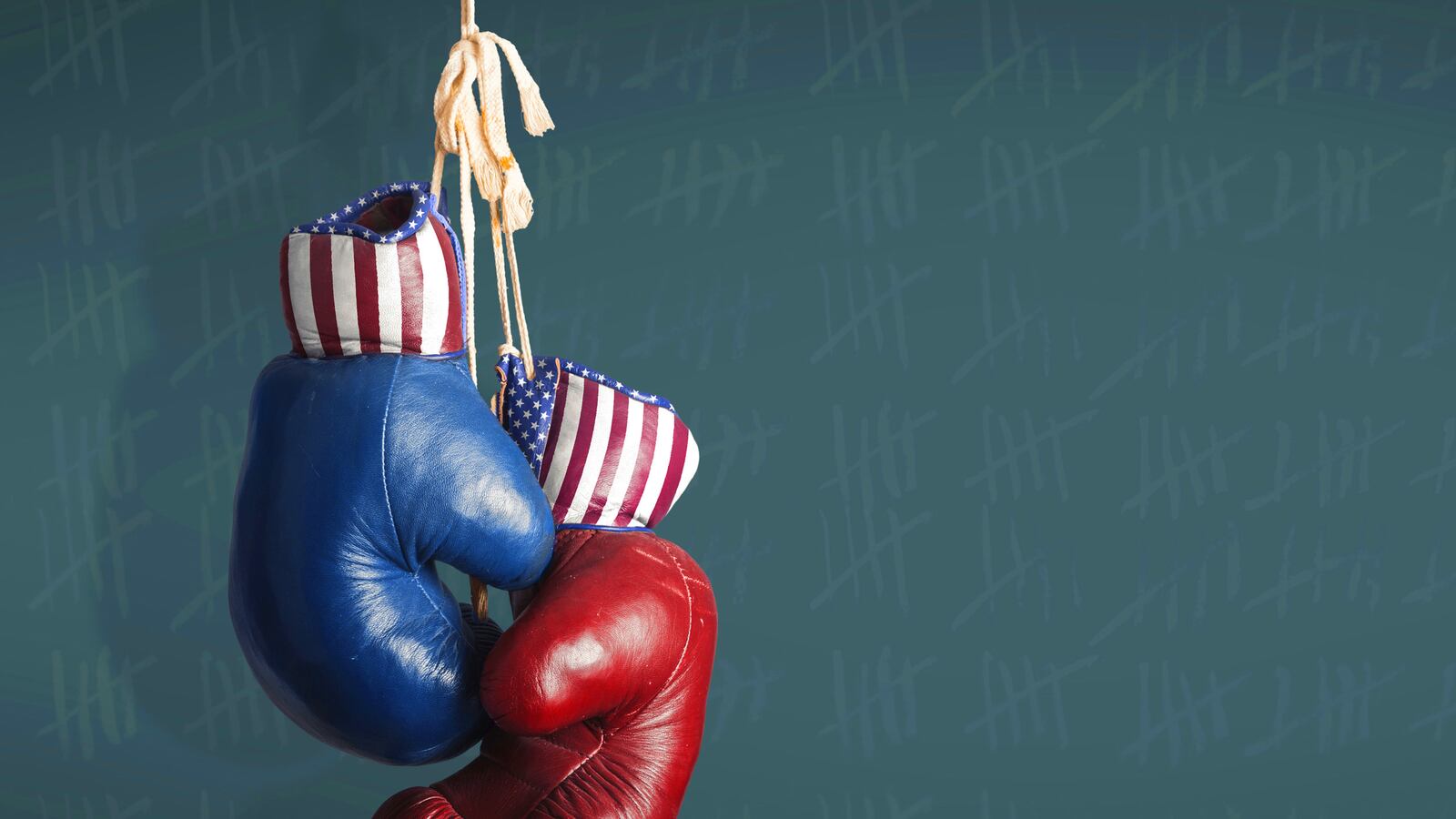Midterm elections are here again. Republicans are projected to gain control of Congress this time around, worrying some Democrats that major shifts in policies, cutbacks in spending, and reductions in the size and scope of government are right around the corner. I wish! Rest assured, tax-and-spend Democrats have little to fear.
Despite airy Republican rhetoric, they are bona fide big spenders and heavy-handed regulators—albeit in a different way than Democrats. Republicans may complain about bloated government and red tape restrictions when they’re benched on the sidelines, but their track record of policies while in power tells a whole different story—and reveals their true colors. Let’s take a walk down memory lane:
While in office, President George W. Bush increased total spending by 55 percent—from $2.5 trillion in FY 2001 to $3.8 trillion in FY 2009 (in real 2013 dollars). Democrat Bill Clinton, who increased spending by 12.5 percent during his administration, looks like a veritable cheapskate by comparison.
Bush apologists, as always, are ready with excuses, like playing the Terrorism Card. They rationalize Bush’s out-of-control spending as a necessary military response to Islamic insurgents at home and abroad. But this is both arguable and evasive: Bush also increased non-defense spending by 40 percent and presided over the biggest expansion of Medicare since its creation under Lyndon B. Johnson.
Even more telling is that when the GOP had full control of both the White House and Congress—during the first half of 2001 and all of the 2003-07 period—total spending grew by more than 20 percent in real terms, or an average of 4.2 percent a year. That’s more than the Democrats increased spending during their two most recent periods of unified government.
When in power, Republicans are also more than willing to increase government intervention in many aspects of our lives. They gave us No Child Left Behind, protectionist steel and lumber tariffs, Medicare Part D, the war in Iraq, the Department of Homeland Security and its intrusive and inefficient Transportation Security Administration, massive earmarking, increased food stamp eligibility, and expanded cronyism at levels never seen before. The massive automobile and bank bailouts were the cherries on top.
Now, what happens if Republicans control Congress with a Democrat in the White House? The data show that when government is divided, congressional Republicans tend to control their appetite for more government. For instance, a 2004 Cato Institute study (PDF) by economists William Niskanen and Peter VanDoren shows that slightly slower spending growth and increased government oversight results when one party controls the White House and the other controls at least one house of Congress.
This might explain why overall spending has decreased by 5.8 percent since President Obama took office—although, we must note, spending exploded so much in the frenzied post-recession fiscal days of 2009 that it was reasonable to assume it could only go down.
Whether Republicans will continue to get in the way of Obama’s requests for more spending is anyone’s guess. The divided-party government of the Clinton White House and Republican Congress during fiscal years 1995 through 2001 provides one potential roadmap. By the end of the Clinton years it was clear that the so-called Republican Revolution was dead; instead of reforming entitlement programs or reigning in regulation, congressional Republicans teamed with the Clinton administration to pass a massive expansion of Medicaid via the new Children’s Health Insurance Program. Republicans’ failure to comprehensively reform government to the slimmer and trimmer ideal that they constantly describe only allowed federal power to return with a vengeance during the Bush presidency.
Besides, while it is true that Democrats have not yet attained every item on their 2010 wish list of federal expansions—like a federal minimum wage or climate change legislation—the Republicans have happily lent their support to fund other expensive goodies.
For instance, since 2010 Republicans have worked closely with the Democrats to reauthorize the corporatist Export-Import Bank not once but twice. They likewise refused to eliminate the 1705 loan-guarantee program that spawned some green-tech boondoggles like Solyndra and Abound Solar. They also passed an outrageous Farm Bill that subsidizes rich farmers and keeps domestic prices artificially high. And let’s not forget that they passed a continuing resolution that blows the spending-control budget caps set in December 2013 by the Ryan-Murray budget. Finally, if they go to war abroad again, it will allow them to grow defense spending in spite of budget caps.
For all their protesting since President Obama’s election, the Republican voting record clearly indicates an inconsistent commitment to free-market principles. They’ll fight against the debt ceiling before turning around to fight against sequestration. They’ll vote against food stamps but then they’ll battle to extend farm subsidies. They voted repeatedly to repeal the Affordable Care Act but when pressed for their actual proposals, the best they’ve got are cosmetic fixes.
Still not convinced? Take a look at what most Republican candidates are running on in their elections. You won’t find platforms founded on dedicated principles of individual rights and limited government. You’ll find only vague platitudes and potshots at the Obama administration. The GOP doesn’t see the need to even carefully craft a message about what it stands for this time around since its candidates can simply capitalize on the unpopularity of a lame-duck Democratic administration. Can you remember the last time you heard a Republican candidate publicly list the federal programs that he or she would personally cut?
The bottom line is that Democrats have no reason to fear the federal empire will shrink after Republicans take control of the Senate. To be sure, Democrats might not be able to grow the state as much as they want in the near future. For that, they’ll just have to wait for another Republican to get to the White House or regain control of everything.






